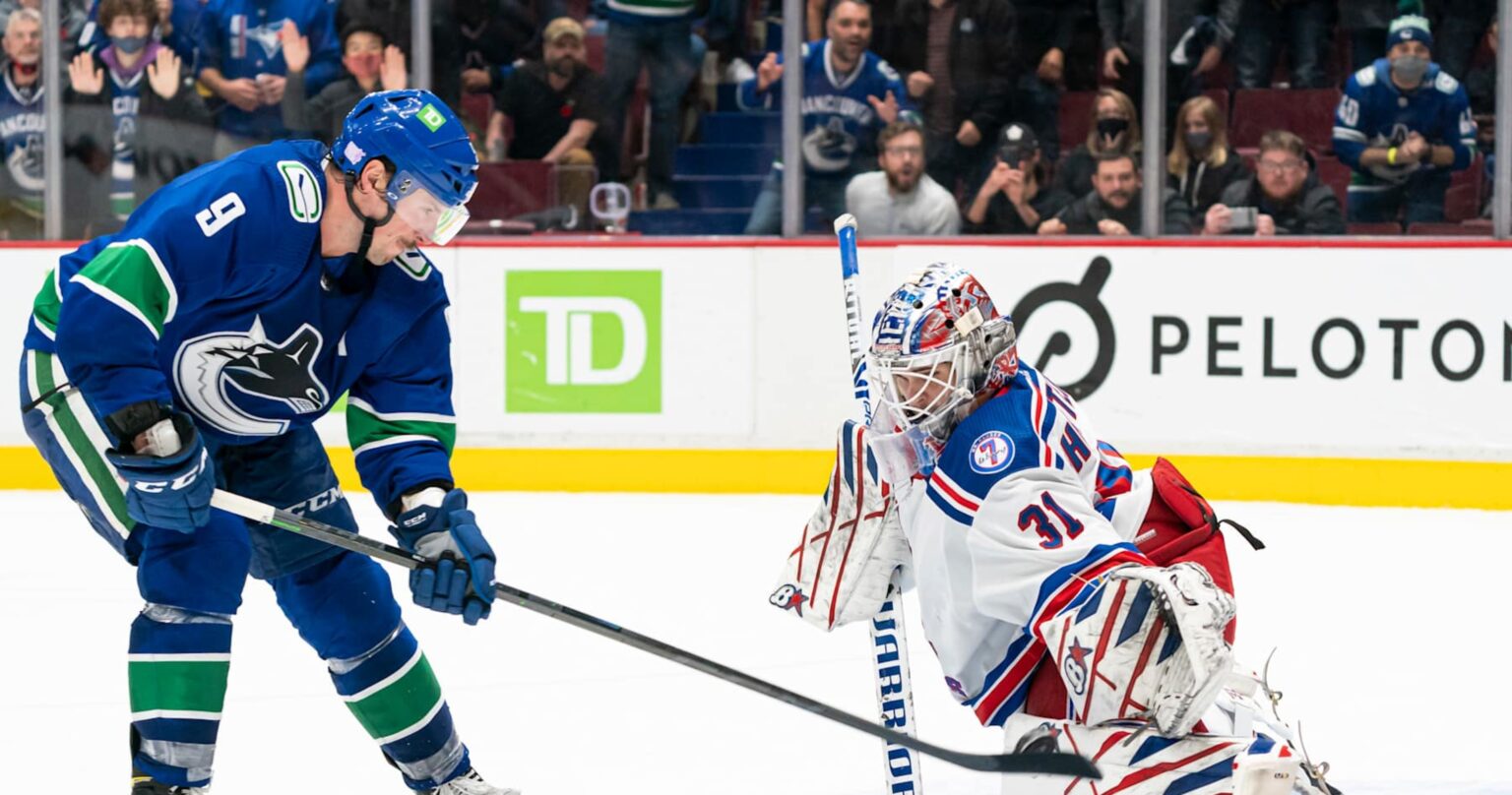Jared Silber/NHLI via Getty Images
This is a tricky one to assess for the New York Rangers.
J.T. Miller is having a nightmare season in practically every facet. He’s playing at a 71-point pace his worst in the last seven seasons and has nine goals in 40 games. But let’s chalk that up to the low-morale environment in Vancouver.
Miller, more typically, is one of the best offensive producers in the NHL. He scored 32-plus goals in each of the previous three seasons and yet primarily serves as a playmaker. In fact, over that span, Miller ranked 10th in the entire league in total points. He is flashy, combining speed, first-class puck skill, and quick strikes to create offense in motion.
And whereas the Rangers have almost exclusively moved assets for temporary fixes the last few seasons, Miller is under contract for five more seasons. To get a player of his caliber for the cost of a young middle-six center, a depth prospect, and a protected first-round pick is quite decidedly in the Rangers’ favor.
Here are the problems. Miller is a bit over-reliant on the power play to produce. This is concerning for two reasons. First, there isn’t a natural spot for him on the team’s top unit. As a lefty, Miller is not a like-for-like swap for right-handed Mika Zibanejad, should he be the player to be demoted.
The bigger concern is that Miller doesn’t address the Rangers’ biggest weaknesses. This team is in desperate need of a stalwart, cornerstone first-line center. Miller may be good, but he is not that. He is not a good defensive center and, unlike in Vancouver where he could play behind Elias Pettersson, he will unequivocally have to be the guy in New York. This team struggles to defend and drive possession at even strength but has elite offensive-zone chance creation. Miller is just more of the same in that regard.
One has to wonder about the timing of this move about the organizational trajectory. This team is barely a coinflip to so much as make the playoffs. Next season he will be 32 years old. The Rangers are already heavily reliant on old forwards to drive them and trading Chytil means that the team does not have a single notable center in the entire organization under the age of 31 years old.
It’s worth mentioning, too, that the team’s defense needs a total makeover. It will be harder to pull that off now having traded three of your best assets to make it happen. Miller is a volatile player in many regards. It’s easy to imagine Miller becoming a part of a quick rebound and revival of the contention window. It’s also a move that leaves the team extremely vulnerable in terms of roster flexibility, organizational age, and asset accumulation.
Let’s be clear. Miller makes the Rangers a better team and is easily the second-best forward on the roster now behind only Artemi Panarin. The Rangers’ roster construction is still fundamentally flawed, and introducing someone who offers only more of the same will not change that fact, regardless of how fiery his personality may be. It remains to be seen how General Manager Chris Drury will build around Miller and utilize a weakened pool of assets to create a lineup that possesses the defensive structure and even-strength play necessary to compete with other contenders.
Read the full article here


